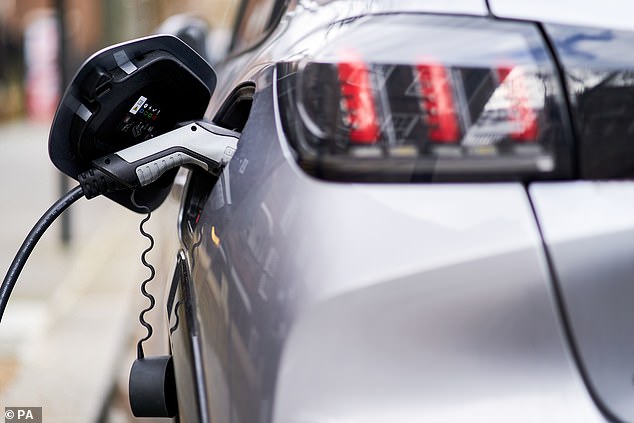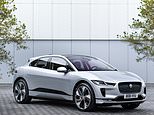New car sales exceed 1m in 2024 at the halfway point - but private EV demand falls
- New car registrations rose 1.1% in June - a 6% increase on first half of 2023
- Battery electric vehicles up 7.4% but propped up by fleet sales
- Industry calls for more EV incentives from new government to help private sales
The new car market has broken the million sales mark at the half year point for the first time in five years.
A 1.1 per cent rise in registrations in June has pushed 2024's half-year sales to 1,006,763, figures from the Society of Motor Manufacturers and Traders show.
Last month's increase has been stimulated by electric vehicle uptake and fleet sector sales.
However, private retail demand has fallen across the board - now industry is calling for the next government to ‘re-energise the market’ by unveiling EV incentives on the day we head to the polls.

The new car market has broken the million sales mark at the half year point for the first time in five years

New car registrations reached 179,263 units in June to push the six-month total above the one million mark for the first time since the pandemic hit
New car registrations reached 179,263 units in June to push the six-month total above the one million mark for the first time since the pandemic hit.
This represents a 6 per cent increase on 2023's first half year.
The biggest driving force has been the 14.2 per cent surge in fleet sector growth, with a significant uptake of EVs.
June saw a 30 per cent increase in plug-in hybrid (PHEV) volumes – to reach a 9.3 per cent market share - and an almost equivalent growth in hybrid electric vehicle (HEV) volumes of 27.2 per cent.
HEVs now account for 14.9 per cent of the market, while pure electric vehicles (battery electric or BEVs) now account for 19 per cent of all new vehicle registrations – its highest monthly share this year.
This 7.4 per cent rise in BEV registrations is a positive sign as the UK market ramps up the switch to electric vehicles.

Pure electric vehicles (battery electric or BEVs) now account for 19 per cent of all new vehicle registrations – its highest monthly share this year

June saw a 30 per cent increase in plug-in hybrid (PHEV) volumes – to reach a 9.3% market share - and an almost equivalent growth in hybrid electric vehicle (HEV) volumes of 27.2%
But, as the UK elects a new government today, the fall in private sales is causing industry concern, putting the UK’s switch to electric under question.
The transition is currently hanging on the fleet sector as private driver uptake continues to soften.
Private BEV uptake has fallen -10.8 per cent to date, with fewer than one in five new BEVs going to private buyers.
It's the same for private sales across the board with retail buyers accounting for less than two in five new cars (just 37.7 per cent).
This represents a 15.3 per cent drop in individual drivers buying new cars – the ninth consecutive monthly decline.

Electric future: The ZEV mandate will force car makers to sell an increasing volume of EVs between now and 2035
Car makers are under new pressure to hit Zero Emission Vehicle mandates (ZEV) targets. Marques must sell an increasing number of BEVs each year until the 2035 new petrol and diesel car ban.
The share of the new car market held by pure battery electrics is predicted to be just 19.8 per cent this year. That falls below the 22 per cent stipulated by the ZEV mandate.
While BEVs now comprise 16.6 per cent of the new car market so far this year, slightly above the 16.1 per cent achieved in the same period last year, this uptake is still behind the levels mandated by the government.
With Labour predicted to win today's General Election, the industry is asking for greater support to private buyers on the journey to zero emissions.
Labour has confirmed it will bring the 2035 deadline forward to 2030. The Conservatives pushed it back to 2035.

Mike Hawes, SMMT Chief Executive, said: 'With the right policies in place, the next government can re-energise the market and deliver a faster, fairer zero emission transition'

'Private demand continues to lag behind fleet, making it clear that revitalising the private electric vehicle market is a pressing issue that must be addressed immediately', says Sue Robinson, Chief Executive of the National Franchised Dealers Association (NFDA)
Richard Peberdy, UK Head of Automotive for KPMG, said: 'The industry has its eyes firmly on the outcome of the election and what that means for automotive policy.
'Increasing new electric vehicle sales is imperative to UK car makers, who are now mandated to ensure that annually increasing percentages of the cars that they manufacture are electric.
'Increasingly players in the industry are talking about how this is best achieved, including the likes of increased incentives for consumer purchases of new EVs.'
Re-instating fiscal incentives by halving VAT on BEVs for three years would put an additional 300,00 private BEVs on the road the SMMT says. This would ensure that by 2035, half of all cars in use would be zero emission – cutting road transport CO2 emissions by 175 million tonnes between now and then.

Re-instating fiscal incentives by halving VAT on BEVs for three years would put an additional 300,00 private BEVs on the road the SMMT says
The SMMT also wants the decision for EVs to pay Vehicle Excise Duty (road tax) from 1 April 2025 to be reversed, and for VAT on public charging to be slashed to 5 per cent (in line with home charging).
Mike Hawes, SMMT Chief Executive, said: 'With the right policies in place, the next government can re-energise the market and deliver a faster, fairer zero emission transition'.
Sue Robinson, Chief Executive of the National Franchised Dealers Association (NFDA), agreed saying: 'Private demand continues to lag behind fleet, making it clear that revitalising the private electric vehicle market is a pressing issue that must be addressed immediately.'

































































